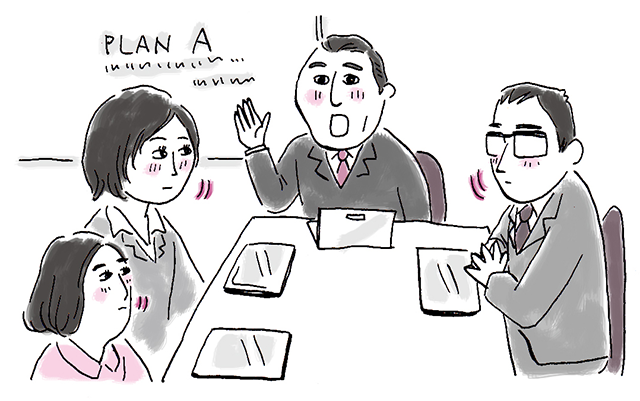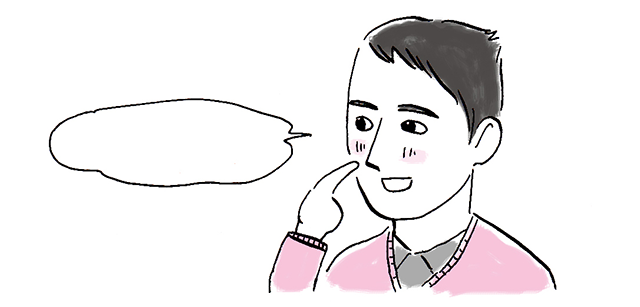Japanese Prefer Vague Expressions

Japanese have a culture of being vague when it comes to expressing their opinions. As illustrated by the following, in the Japanese language there are many expressions that avoid arriving at a conclusion: “Sono teian, yosasou desu ne.” (That sounds good). “Sono teian ii kamo.” (That suggestion may be good). “~ sou” or “~ kamo” transmits the nuance that you have not yet come to a decision on whether it really is good or not, but an agreement to the suggestion may be possible and this is favorably received by the person who has made the suggestion.

When making inquiries of someone, Japanese often use ‘softening’ expressions. “Seiseki no hou wa, dou deshita ka.” (How were your grade and such?) “Koibito toka wa, dou desu ka.” (What about girlfriends and so forth?) Adding “~ hou” or “~ toka” makes it easy for the person being questioned to answer as they don’t necessarily have to answer seriously.
Recently, instead of saying “Watashi wa so omoimasu” (I think so), many people say the following, which includes the nuance of “Watashi to shite wa” (as for me): “Watashiteki niwa sou omoimasu.”
“~ teki” is not a correct way of speaking, but has the effect of softening expressions. It is not easy to translate these kinds of vague Japanese expressions into English. One typical word is “~ nado.”
For instance, “Nihon no bunka ha, Chuugoku, Kankoku nado kara eikyou wo ukemashita.” (Japanese culture was influenced by China and Korea. Japanese think it wouldn’t be accurate to limit this to China and Korea; by adding “~ nado” it’s more inclusive. Many Japanese translate “~ nado” into English as “etc.,” or “and so on,” but English translators often omit the word.
The underlying reason why Japanese like to use indirect expressions lies in the Japanese mindset which places importance on getting well with others by avoiding friction.
